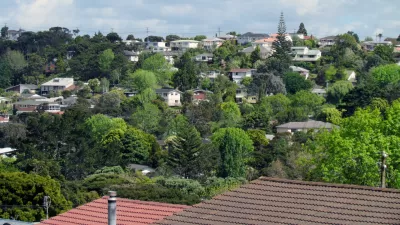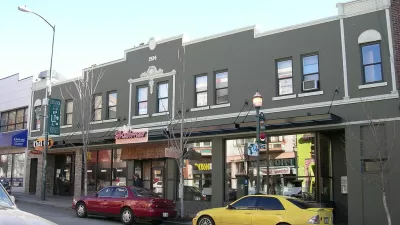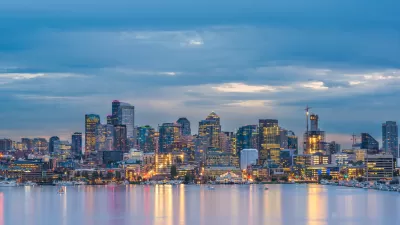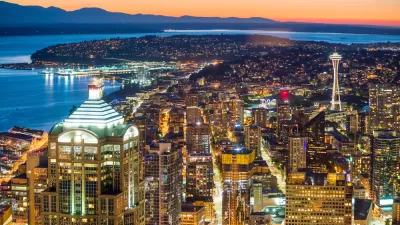A critical analysis of a proposal that would incrementally increase density in parts of Seattle.

Dan Bertolet analyzes a policy under consideration by the Seattle City Council that "would 'upzone' 6 percent of the city’s abundant single-family land. (Single-family zoning currently covers more than half of the city.)"
The proposed upzoning is a component of the 2015 Housing Affordability and Livability Agenda (HALA), but the scope of the upzoning falls well short of policy proposals considered early in the HALA process.
Bertolet supports the general concept of relaxing regulations in single-family zones, saying the end of single-family zoning is "long overdue" in the growth nodes laid out by the city's urban village growth strategy. However, Bertolet calls the current proposal a "disappointing half-measure, arguably not worth the intense political effort now underway to win adoption."
Overall, the proposed rezone would yield a trivial number of new homes: likely no more across the whole city annually than come in two typical mid-rise apartment buildings. Nearly two-thirds of the upzoned single-family land would be converted to “residential small lot” (RSL) zoning, a classification that barely loosens the status-quo prohibition of homes appropriate for a mixed-use, transit-rich urban neighborhood.
The remainder of the article illuminates Bertolet's opinions on the shortcomings of the RSL zoning designation, and proposes changes that could improve zoning for housing in Seattle as well as other prosperous cities in Cascadia and North America.
FULL STORY: A baby Step Toward Revamping Single-Family Zoning

Alabama: Trump Terminates Settlements for Black Communities Harmed By Raw Sewage
Trump deemed the landmark civil rights agreement “illegal DEI and environmental justice policy.”

Study: Maui’s Plan to Convert Vacation Rentals to Long-Term Housing Could Cause Nearly $1 Billion Economic Loss
The plan would reduce visitor accommodation by 25% resulting in 1,900 jobs lost.

Planetizen Federal Action Tracker
A weekly monitor of how Trump’s orders and actions are impacting planners and planning in America.

Grand Rapids Mayor Proposes Garage Conversion Plan
The mayor says allowing homeowners to convert garages to dwelling units could alleviate the city’s housing shortage.

Baltimore Ordered to Improve Sidewalk Accessibility
The city is one of many to face lawsuits for failing to comply with the Americans with Disabilities Act.

This Toronto Suburb Has More Bus Riders Than Columbus, Ohio
Brampton, Ontario used gradual improvements in service to prove that if you build it, they will ride.
Urban Design for Planners 1: Software Tools
This six-course series explores essential urban design concepts using open source software and equips planners with the tools they need to participate fully in the urban design process.
Planning for Universal Design
Learn the tools for implementing Universal Design in planning regulations.
Smith Gee Studio
Alamo Area Metropolitan Planning Organization
City of Santa Clarita
Institute for Housing and Urban Development Studies (IHS)
City of Grandview
Harvard GSD Executive Education
Toledo-Lucas County Plan Commissions
Salt Lake City
NYU Wagner Graduate School of Public Service





























